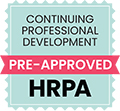Becoming a confident, self-aware leader who can tackle a variety of challenges takes effort. Rotman’s Psychology of Leadership can help you address key issues such as:
- Imposter syndrome
- Workplace conflict
- Lagging employee engagement
- Toxic culture or toxic colleagues
- Overcoming past stressful events
The way you think about yourself and understand your team and your colleagues impacts every decision you make as a leader. The Psychology of Leadership provides you with new skills, tools, and lenses for addressing increasingly complex organizational problems, while also helping you become more self-aware so you can present your most authentic self.
Apply NowNovember 7 – 8, 2024 | $5,000 CAD + HST
Show up as your whole, authentic self.
Professionals like yourself often find themselves faced with competing responsibilities: reaching organizational goals and developing the people in their immediate teams. Professor Maja Djikic will help you through a self-development journey that facilitates broader organizational change as well as personal growth.
By working on your self-development, you’ll learn how to improve your motivation, prevent burnout, build resilience, cultivate focus, and adapt to change.
You will learn:
- about the structure of the motivational system, and how to align your priorities with personal and organizational goals.
- how to prevent burnout and find routes to align yourself with organizational actions that you value the most.
- optimal emotion-management in the workplace, and how to facilitate healthy organizational culture.
- how to cultivate focus and develop productive organizational narratives.
Schedule
Welcome/Kick-off Event Pre-Program (Dates TBD)
Day 1:
- Motivation: Aligning personal and organizational goals
- Behaviour: Preventing burnout and facilitating agency
Day 2:
- Emotions: Developing personal and organizational resilience
- Mind/Body: Cultivating focus and adapting to change
Schedule subject to change.
A transformational, not just informational learning approach
This program isn’t just about readings and lectures. Learn by doing with a self-development project and receiving direct feedback.
Self-development project
Participants will be asked to self-identify an underdeveloped skill they believe is hindering their leadership success, and work on it throughout the program. At the end of each day of the program, participants will be given techniques and exercises to practice and work on their self-development.
Individualized feedback session
In the individualized feedback session, the instructor and each participant will spend 30 min. in which they will discuss progress, identify obstacles, and propose alternate techniques, as necessary, for a successful completion of the self-development project.
Dive into what motivates you to help understand what motivates others.
Your motivational system sets the short and long-term goals that govern your life. If you often find yourself facing conflicting or contradictory goals, this program can help you learn how to assess, evaluate, and prioritize personal and organizational goals.
Once you’ve learned how to manage motivation and competing goals, it’s important to move on to preventing burnout. According to the Future Forum*, over 40% of the global workforce feels burnt out post-COVID, making it one of the biggest problems we face today. Professor Djikic will help you learn about self-regulation and self-change, along with ways to facilitate agency and prevent, reduce, or reverse burnout.

Associate Professor of Organizational Behaviour & HR Management
Director, Self-Development Lab
Maja Djikic, Ph. D. is an Associate Professor of Organizational Behavior and Human Resource Management and the Director of Self-Development Laboratory at the Rotman School of Management, University of Toronto. She is a psychologist specializing in the field of personality development. Her work examines means of developing a congruent and flexible self. She has been a post-doctoral fellow with Desautels Centre for Integrative Thinking at Rotman School of Management, and Psychology Department at Harvard University.
Develop the skills to mindfully interrupt emotional spirals which, left untreated, can lead to poor long-term outcomes. You’ll learn not only how to regulate your own emotions, but also how the emotions of your employees influence organizational culture and which strategies you should use for emotion-heavy interpersonal reactions among your team.
Your brain is a complex, flexible system that has evolved to solve problems, and when you find yourself torn between competing pressures and distractions, this ability is negatively impacted. 'You can practice techniques that will change your neural pathways, and learn to develop personal resilience, which can have a long-lasting effect on your motivation, mind, emotions, and behaviour.
From microaggressions to mass layoffs, managing people has never been more complex or more important. Build the skills for impactful and important learning that lasts with Rotman’s Psychology of Leadership.
Application Process
Before beginning the application process, please review the application policies. To apply, complete the online application form.
*Are you using Internet Explorer? Have you updated Chrome or Firefox lately
Due to new browser security requirements, those using older or incompatible browsers may encounter technical difficulties. If you encounter a blank screen when you try to start your online payment process, please see our Having Trouble? page.
Each application is reviewed by Rotman's admissions committee to ensure participants have the appropriate academic and work experience.
Participant Notification Process
If space is available and eligibility requirements are met, participants will receive a notice of admission within 10 days of receipt of a completed application and fee deposit.
Payment
Payments can be made online. Applicants will be redirected to a secure online payment website after completion of the application form. A deposit of 50% of the program fee is required at time of application. The balance of the program fee is due 30 days after receipt of invoice or 30 days before the start of the program, whichever is first. Deposits will be refunded to applicants not accepted to the program.
 This program has been approved for 15.5 CPD hours under Section A of the Continuing Professional Development (CPD) Log of the Human Resource Professionals Association (HRPA).
This program has been approved for 15.5 CPD hours under Section A of the Continuing Professional Development (CPD) Log of the Human Resource Professionals Association (HRPA).